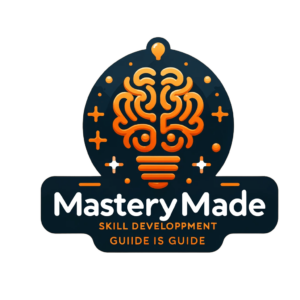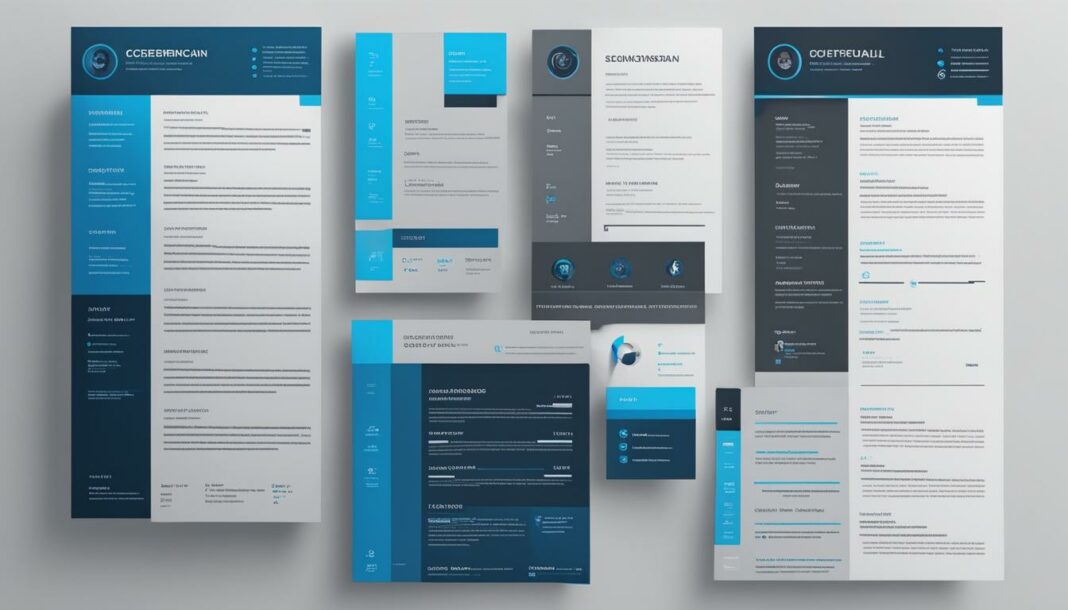Embarking on a job search is an adventure where our first companion—our resume—holds immense power. It’s not merely a summary of experiences; it is our professional narrative, our career distilled onto a page, serving as the vital first impression for potential employers. Crafting a professional resume plays a pivotal role in our journey, posing as the critical determinant between landing an interview or being overlooked.
As job seekers, we all face the challenge of standing out in a sea of candidates. That’s why we delve deep into the art of resume building, guiding you through crafting compelling resume examples that reflect an authentic and impactful professional image. We understand the nuances of curating a document that not only encapsulates our career to date but also ignites excitement about our future potential.
Join us as we lay out the foundational steps toward a dynamic job search, revealing the essential strategies for a resume that doesn’t just tick boxes but captivates and convinces. Let us be the architects of our next career move, building a resume that aligns seamlessly with our professional dreams and aspirations.
Key Takeaways
- Understand the critical role a well-crafted resume plays in your job search success.
- Learn the essential components that constitute a strong, professional resume.
- Discover the power of personalized resume examples to make an outstanding impression.
- Embrace the art of strategically showcasing your unique skills and achievements.
- Gain insights into the diverse formats and tailor your resume to reflect your career journey.
Understanding the Foundations of a Strong Resume
Mastering the craft of resume creation is an integral part of professional development. Knowing how to build a resume that stands out not only showcases your qualifications but also opens gateways to career opportunities. Let us delve into what makes a resume a powerful tool in your job search.
The Purpose and Importance of a Resume
A resume is more than just a summary of your work history; it’s a strategic document designed to market your skills and experience. Its paramount significance lies in its potential to unlock job opportunities and give you a platform for career advancement. Consider your resume as the key introduction to hiring managers, presenting a narrative that aligns your abilities with their needs.
Key Components of an Effective Resume
Every successful resume is built on a foundation of essential elements that together, weave the narrative of your professional life. Here’s what to include:
- Contact Information: Ensures employers can reach you easily.
- Professional Summary: A concise overview of your career highlights.
- Work Experience: A detailed list of past roles and responsibilities.
- Education: Outlines your academic qualifications and trainings.
- Key Skills: Highlights your abilities and areas of expertise.
- Certifications and Awards: Recognitions that set you apart.
Together, these components are pivotal in giving insight into your professional journey and are key to garnering the attention of potential employers.
Choosing the Right Resume Format
The format of your resume can greatly influence its effectiveness. We’re here to offer resume advice tailored to the many career paths one might pursue. It’s about aligning your experience with one of the following formats:
| Format | Best For | Purpose |
|---|---|---|
| Chronological | Candidates with solid work history | Highlighting a steady growth in career arc. |
| Functional | Career changers or those with gaps in employment | Emphasizing skills over chronological work history. |
| Combination | Professionals with diverse skills and experiences | Combining a chronological layout and a functional emphasis on skills. |
By carefully considering your professional background and career aspirations, you can select the format that will best present your qualifications in a manner that resonates with employers.

Strategies for Highlighting Your Best Qualities
In today’s competitive job landscape, distinguishing yourself hinges not only on the resume skills you possess but also on how skillfully you articulate and present them. As experts in resume writing tips, we understand the nuances that can turn a good resume into an exceptional one. Here, we explore several strategic moves designed to bring your most impressive qualities to the forefront, convincing hiring managers that you are the ideal candidate for the job.

To begin, focusing on accomplishments with measurable outcomes gives your application the edge it needs. We’ve assembled an easy-to-follow list of potent action verbs to amplify your achievements:
- Accelerated
- Expanded
- Optimized
- Revitalized
- Surpassed
Each of these words packs a punch, suggesting not just activity, but impactful change and improvement that you’ve spearheaded.
It is also crucial to align your presented skills with the job description—a tactic that demonstrates you’re not just searching for any job, but that you’re a perfect fit for this particular position. To further illustrate this point, let’s compare a generic skills section to one tailored for a specific job in the following table:
| Generic Skills Section | Tailored Skills Section |
|---|---|
| Good communication skills | Effectively managed cross-department communication to increase project efficiency by 25% |
| Team player | Collaborated with a team of 10 in a high-pressure environment to meet tight deadlines |
| Proficient in Microsoft Office | Employed advanced Excel functions to streamline budget tracking, cutting reporting errors by 15% |
Finally, ensure your resume doesn’t just tell, but shows. Instead of stating you’re a good team player, depict a scenario where your ability to work in a team was crucial to achieving a goal. It’s all about crafting a narrative that’s as individual as you are—because you are not just a candidate, you are the candidate they’ve been searching for.
Crafting a Professional Summary That Stands Out
Our journey to creating a standout resume brings us to one of its most pivotal elements: the professional summary. Positioned strategically at the resume’s forefront, this concise paragraph serves as your elevator pitch, distilling your professional essence into a captivating intro. Here, we bridge the gap between a generic application and one that truly resonates with your prospective employer by leveraging a thoughtfully chosen resume format and tailoring content to reflect your career aspirations.
What to Include in Your Professional Summary
When sculpting your professional summary, using a reliable resume template can provide a robust framework to begin shaping your narrative. Key elements to include are:
- Solid track record: Emphasize a history of achievements and results that align with the role you are vying for.
- Relevant skills: Pinpoint the abilities that equip you for success in the prospective role. Think leadership, technical know-how, or strategic planning.
- Professional goals: Briefly mention your career objectives, ensuring they harmonize with the vision and direction of the company.
This precise summary not only highlights your career highlights but also showcases your ambitions, echoing the synergy between you and your desired position.
Tailoring Your Summary to Your Desired Role
Diving deeper, customization is the lifeblood of relevance in the job-hunting arena. This personalization of your professional summary is twofold:
- Align qualifications with the job description, serving as a clear indicator that you are well-suited for the role.
- Reflect a genuine interest in the company by weaving in an understanding of its values and mission statement.
Thus, by meticulously optimizing your resume’s professional summary to the role at hand, you catalyze a connection that transcends mere qualifications – it’s about fitting into the tapestry of the company’s culture and future.
Resume Building Tips for Various Career Levels and Industries
Embarking on the job hunt journey can be daunting, but regardless of where you are in your professional path or the industry you’re targeting, there are strategies you can employ to craft a resume that shines. From those just stepping into the workforce to seasoned professionals embarking on new ventures, we’ve amassed practical resume building tips to help you present your best self.
Resume Tips for Entry-Level Job Seekers
When you’re fresh on the job scene, it might seem like a challenge to fill your resume with relevant experience. But fear not—internships, volunteer positions, and even personal projects can exhibit your commitment and skills. Resume examples for entry-level candidates should highlight educational accomplishments, relevant coursework, and any hands-on experience that demonstrates a readiness to enter the professional world. Think of your resume as a narrative of your potential, featuring any leadership roles in clubs or organizations that show you’re ready to dive into your chosen field.
How to Build a Resume for a Career Change
Making a career pivot is all about showcasing how your previous experiences have equipped you with a valuable skill set that can transfer to a new domain. Emphasize your adaptability and how past achievements can benefit your targeted industry. When you’re building your new resume, focus on weaving a storyline that connects the dots between your past and desired future. Utilize resume building tips like focusing on your transferable skills, incorporating industry-relevant keywords, and highlighting any relevant educational pursuits that align with your new professional goals.
Industry-specific Resume Advice
Every industry has its quirks, and understanding these can mean the difference between a resume that fits in or stands out for the wrong reasons. Technical fields often prioritize concise, bullet-pointed skills sections, while creative industries may allow for a touch of personal branding and flair. By examining well-crafted resume examples within your industry, you can identify patterns and preferences that will guide your content and format choices.
Remember, no matter what career stage you’re at or what changes you’re hoping to make, your resume is your personal brand ambassador. It’s your chance to make a memorable first impression that leads to the next step in your professional journey. So follow our tips, gleaning insight from tried and true resume examples, and don’t hesitate to seek industry-specific advice to ensure your resume aligns perfectly with the job you aspire to land.
Conclusion
As we acknowledge the culmination of our insights on resume building, it’s evident that crafting an impeccable resume is fundamental to unlocking professional opportunities. We’ve navigated the essential steps and strategies for how to build a resume that not only outlines your qualifications but also underscores the unique value you bring to potential employers. It’s a powerful weapon in your job search arsenal that should be handled with care and precision.
Our rich reservoir of resume advice is designed to embolden you, providing the clarity and direction needed to tailor a document that proudly spotlights your individuality and prowess. Whether you’re stepping into the job market for the first time or seeking a fresh challenge in a new industry, remember that a professional and personalized resume is your advocate in an increasingly competitive landscape.
In harnessing these tools and techniques, our earnest hope is that you feel equipped and motivated to construct a resume that not only stands out but one that genuinely resonates with who you are and where you aim to go in your career journey. We stand alongside you as you take this pivotal step towards your next professional endeavor.
FAQ
What makes a resume a crucial tool for job seeking?
A resume is a crucial tool because it serves as a personal marketing document that outlines your qualifications and potential to prospective employers, making a compelling first impression and opening doors to career opportunities.
Can you explain the key components of an effective resume?
The key components of an effective resume include your contact information, a professional summary or objective, work experience, education, skills, and any relevant certifications or accolades. Together, these elements should present a cohesive narrative of your professional journey.
How do I choose the right resume format for my job application?
Choosing the right resume format depends on your career situation. Chronological resumes are traditional and focus on work history, functional resumes highlight skills over experience, and combination resumes merge both approaches. Consider your work experience, skill set, and the job requirements to decide which format will best showcase your qualifications.
What are some effective strategies for highlighting my best qualities in my resume?
To effectively highlight your best qualities, use quantifiable achievements, tailor your skills to match the job description, and incorporate powerful action verbs that convey your accomplishments and dynamism. Strategically structure your resume to draw attention to your key strengths and relevant experiences.
What should I include in my professional summary?
Your professional summary should include a concise overview of your most significant qualifications, achievements, skills, and career aspirations. It’s also beneficial to mention how you can contribute to the prospective employer’s goals, using a resume template for structure and alignment with your desired resume format.
How can I tailor my professional summary to the role I desire?
To tailor your professional summary, study the job description and the company’s values, and then reflect those in your summary. Show how your qualifications and career goals align with what the employer is seeking in a candidate, ensuring you make a personalized and relevant impression.
What resume tips are particularly useful for entry-level job seekers?
Entry-level job seekers should focus on highlighting their potential by showcasing internships, volunteer work, relevant projects, academic achievements, and extracurricular activities. Use these experiences to demonstrate your skills and readiness for the workforce, even if you have limited professional experience.
How should I build my resume if I am looking to change careers?
When changing careers, emphasize transferable skills and craft a narrative that connects your past experiences with new career goals. Highlight how certain aspects of your previous career path have equipped you with unique skills that can be advantageous in your new field.
Why is industry-specific resume advice important?
Industry-specific resume advice is important because different sectors have unique standards and expectations when it comes to resume formats and content. Tailoring your resume to reflect these nuances can significantly increase your chances of resonating with hiring managers in your chosen field.











